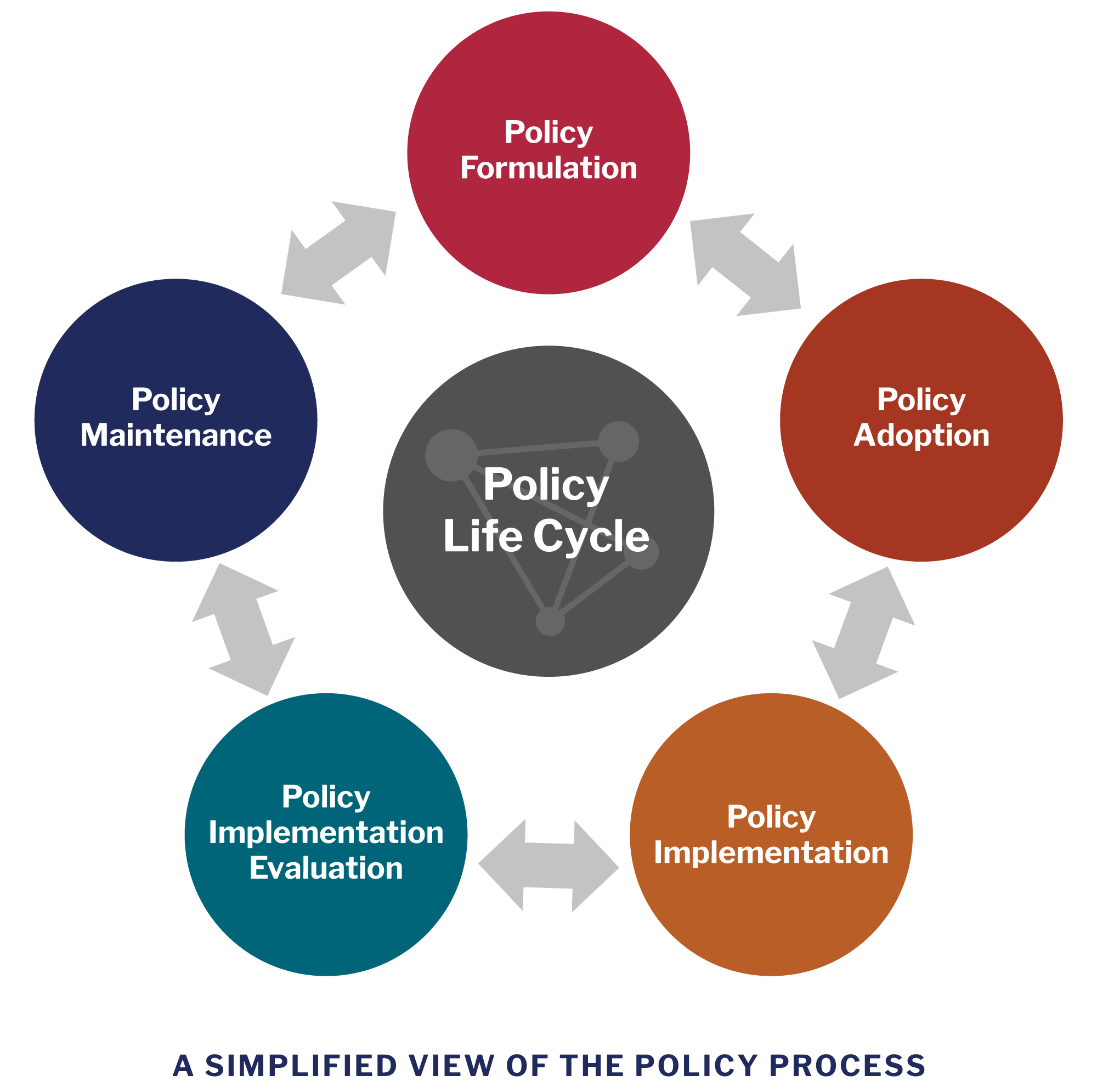For more information:
Email UsPolicy Research
Health Policy research aims to understand how policies, regulations, and practices may influence population health. Translating research into evidence-based policies is an important approach to improve population health and address health disparities.
The policy process, although complex and dynamic, provides an opportunity to ask different types of research questions and apply various methodologies – from public health law to health services research to cost-effectiveness to policy implementation and dissemination.
Quantitative, qualitative, or mixed methods research can be conducted at different stages of the policy process. For example, researchers may be interested in understanding what evidence is available on the topic or how this evidence is used to formulate policy solutions. Research may also examine different factors that may influence the implementation of policies. Finally, assessing the health impacts or unintended consequences of a policy, as well as the factors that facilitate its sustainment, are important research topics.

Harvard Catalyst Policy Atlas
Policy Atlas is a free, web-based, curated research platform that catalogues downloadable policy-relevant data, use cases, and instructional materials and tools to facilitate health policy research. The Policy Atlas includes data on various health topics and policies, and may be used for research, evaluation, or a quick summary of state rankings or health trends. The topics vary from health laws and bills, to social and environmental determinants of health, to health disparities, and other topics.
Examples of Policy Research
Policy adoption study: Examination of Trends and Evidence-Based Elements in State Physical Education Legislation: A Content Analysis
This study comprehensively reviewed existing state legislation on school physical education (PE) requirements to identify evidence-based policies. The authors found that despite frequent PE bill introduction, the number of evidence-based bills was relatively low.
Policy implementation study: Political Analysis for Health Policy Implementation
To better understand factors that may affect the process and the success of policy implementation, a political analysis was conducted to identify stakeholder groups that are likely to play a critical role in the process. The results revealed that six groups impact the implementation process: interest groups, bureaucratic, budget, leadership, beneficiary, and external actors.
Policy impact evaluation: Reducing Disparities in Tobacco Retailer Density by Banning Tobacco Product Sales Near Schools
This study examined whether a policy ban on tobacco product sales near schools could reduce existing socioeconomic and racial/ethnic disparities in tobacco retailer density in Missouri and New York. The findings suggested that the policy ban would reduce or eliminate existing disparities in tobacco retailer density by income level and by proportion of African American residents.
Other Resources
Health Policy Analysis and Evidence: Centers for Disease Control and Prevention (CDC) resource on health policy analysis and evidence-driven policy to improve population health.
Health in All Policies (American Public Health Association): a policy approach to address social and other factors that influence health and equity.
Four-Part Webinar Series on Policy Evaluation (National Collaboration on Childhood Obesity Research): This seminar series aims to increase skills of researchers and practitioners in policy evaluation effectiveness.
Research Tools (Center for Health Economics and Policy, Washington University in St. Louis): health economics and policy research tools, including cost effectiveness, policy analysis toolkit, and policy analysis web series.
Theory & Methods (Center for Public Health Law Research): public law/ legal epidemiology methods for conducting research on the impact of laws and legislation on public health.
Introduction to Legal Mapping (ChangeLab Solutions): an introduction to legal mapping, a method to determine what laws exist on a certain topic, collect and summarize policy data, and ultimately estimate the effects of these policies on health outcomes.

